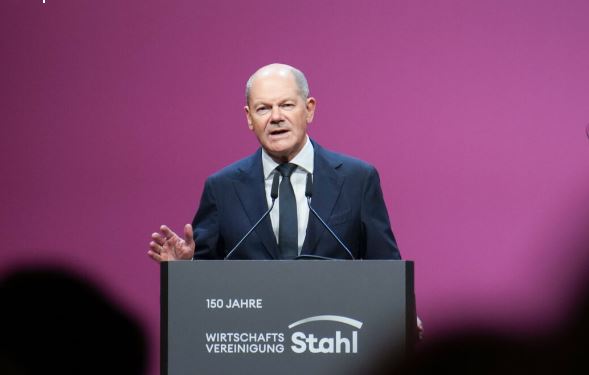German Steel Association aniversary: Celebrating in challenging times
by David Fleschen

The anniversary celebration of the German Steel Association (Wirtschaftsvereinigung Stahl) took center stage at the Futurium in Berlin, where 300 distinguished guests from politics, business, academia, media, and society gathered to honor 150 years of the steel industry’s unifying legacy. The event unfolded against a backdrop of serious challenges for Germany’s steel sector, underscoring both the weight of history and the urgency of transformation.
Notable attendees included Chancellor Olaf Scholz, Vice Chancellor and Minister for Economic Affairs Dr. Robert Habeck, Transport Minister Dr. Volker Wissing, Saarland Minister President Anke Rehlinger, and Julia Klöckner, economic policy spokesperson for the CDU/CSU parliamentary group. Their presence, amidst ongoing government crises, highlighted the critical importance of the steel industry for Germany’s economic and industrial future.
"Celebrating our 150th anniversary allows us to draw strength from our past achievements as we face the immense challenges of today, all while keeping our eyes on the future," said Gunnar Groebler, President of the Wirtschaftsvereinigung Stahl. "The steel industry has played a foundational role in shaping Germany’s industrial development. Despite current difficulties—such as non-competitive energy prices, geopolitical and trade tensions—we remain determined to lead this transformation. In times of crisis, our responsibility grows, both for achieving climate neutrality and for preserving Germany as an industrial powerhouse that supports millions of jobs."
Germany, the largest steel producer in the European Union, relies heavily on its steel sector. Two-thirds of Germany’s industrial workforce, around four million people, are employed in steel-dependent industries, with 80,000 working directly in steel production. However, the industry is facing a profound crisis. Raw steel production in 2023 fell to 32.8 million tons, a level not seen since the 2009 financial crisis. Rising energy costs and fierce competition from Asia have compounded these struggles, leading to plant closures and wage pressures, with workers bearing the brunt of economic restructuring.
Groebler’s speech emphasized the pivotal role of steel in Germany’s history, from industrialization to post-war reconstruction and European integration, while also acknowledging the urgent need for adaptation. "We are undergoing the most significant transformation in our history: transitioning to climate-neutral production," he stated. He stressed that achieving this requires not just industry-wide efforts but also critical policy support, including affordable green energy and stable, reliable regulations. "We must lower our carbon footprint and that of our client industries—automotive, rail, machinery, and energy. But we need political conditions that guarantee reliability and competitive energy costs."
Despite the immense challenges, Groebler pointed to the sector’s potential. "The transformation of the steel industry to climate neutrality is not just a necessity but an opportunity. Steel has been essential for 150 years and will remain so. Together, we can shape a sustainable future with this material that has stood the test of time."
Source and Photo: WV Stahl

